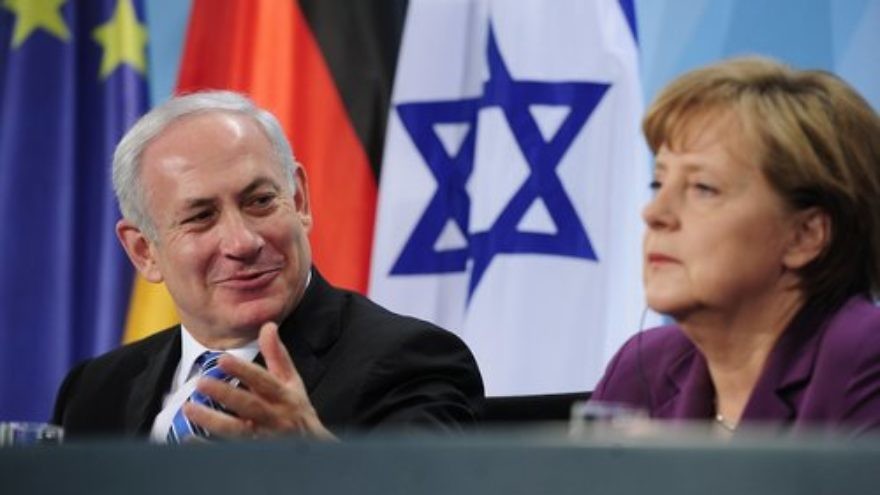German Chancellor Angela Merkel is scheduled to make her first visit to Israel since February 2014 in October, despite strained relations with Israeli Prime Minister Benjamin Netanyahu, who met Merkel in Berlin in June.
During her visit, Merkel is scheduled to be awarded an honorary doctorate from the University of Haifa. She is also expected to visit the Israel Museum and the Foreign Ministry exhibit on innovation featuring the work of six Israeli companies.
But the main point of dispute between Merkel and Netanyahu is Iran—namely, the Iran nuclear agreement reached between Tehran and six world powers in 2015. Netanyahu has consistently warned that the deal, which aimed to curb Iran’s nuclear ambitions, fell short of preventing and Iranian bomb and neglected to address the other threats posed by Iran.
Merkel, however, represents a strong European faction currently trying to salvage the agreement, which all but collapsed when the United States withdrew from it in May.
Currently, Germany is opposing renewed U.S. sanctions against Iran and proposing that Europe establish a banking and finance system that would bypass the United States and allow the transfer of money to Iran, propping up the Iranian economy and preventing the nuclear agreement from complete collapse.
German Foreign Minister Heiko Maas published an op-ed in the German financial paper Handelsblatt this week in which he floated the idea of Europe cutting its dependence on the American banking system, suggesting instead independent channels for the transfer of funds to Iran.
“It is indispensable that we strengthen European autonomy by creating payment channels that are independent of the United States, a European Monetary Fund and an independent SWIFT system,” wrote Maas.
This proposal is likely to increase tension between Berlin and Washington. In the next few days, Germany’s central bank is expected to decide whether to comply with Iran’s request to withdraw €300 million to €380 million ($350 million to $440 million) in cash from its bank accounts in Germany.
Israel and the United States have asked Germany not to give such a large sum to Iran, given the prevailing assessment that the regime will use it to fund terrorist activity and Iranian aggression in the Middle East. Germany said it had no evidence to back up the Israeli and American claims.


























